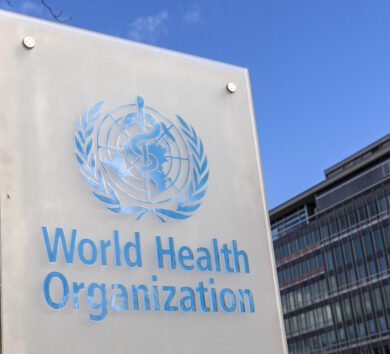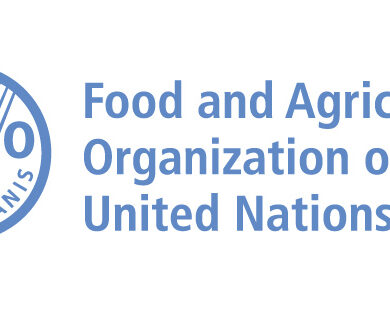

Food loss and waste (FLW) is more complex than post-harvest practices, says Courtney Cole, chief technical director at the Ministry of Agriculture, Fisheries, and Mining.
“Food loss and waste is quite complex in terms of how we think about [wasting and losing food] and it happens at many different levels, from the hotels to what we do with food in our homes. It’s not just about what the farmer does in terms of post harvest production,” he said.
Cole was speaking at a Food and Agriculture Organization of the United Nations (FAO) technical workshop covering the prevention and reduction of food loss and waste from the perspective of countries in Latin America and the Caribbean.

Further sharing about the complexities, Cole pointed to the 30 per cent of Jamaica’s agricultural output that gets lost each year because of a lack of post-harvest storage facilities as well as inadequate transportation to take products to market.
Cole’s statement is supported by the FAO who shared that Jamaica has “perennially suffered from a high level of food loss and waste, especially in the leafy vegetables and soft fruits value chain, with pre-pandemic levels of up to 30 per cent.
Based on that level of loss, FLW poses a significant threat to Jamaica’s food security and sustainability.

“This is very important event for us as a country. We know that agriculture is one of the major growth factors for the economy,” said Cole, who shared that the average of between 6.6 to the most recent eight per cent of agriculture contributes to the country’s gross domestic product (GDP).
He added that despite the estimated lost annual agricultural output, the average agriculture contribution to the economy “rolls up to a value added GDP which we don’t talk about very much. That value added creates employment,” and stressed that though it is important thing, much more needs to be done where the reduction and prevention of food loss is concerned.
According to the FAO, FLW represents a pressing challenge in the design of sustainable food systems. It negatively impacts food security and nutrition and significantly contributes to greenhouse gas (GHG) emissions, environmental pollution, degradation of natural ecosystems, and biodiversity loss. It also represents a waste of resources used in food production.

Reducing and preventing food loss and waste is a defined target within the Sustainable Development Goals (SDG), specifically target 12.3. It states that by 2030, the per capita global food waste at the retail and consumer levels and reduce food losses along production and supply chains, including post-harvest losses will be halved.
Part of the workshop’s aim was to promote zero tolerance to FLW and to coordinate efforts and resources for FLW management. The workshop sought to support stakeholders within the Ministry of Agriculture, Fisheries, and Mining and the Rural Agriculture Development Authority (RADA), and other institutions to improve the FLW management in some stages of the food system, especially in those related with production (harvest and post-harvest), distribution and commercialisation, with attention to urban markets and school feeding programmes.
Additionally, the workshop sought to begin the transformation of the national food system by providing tools for the monitoring of the Food Loss Index and the development of a national strategy through discussions and presentations.

For his part, FAO Representative for Jamaica, the Bahamas and Belize, Dr. Crispim Moreira, said, “We must recognise that in a world where hunger and malnutrition persist, it is simply unacceptable that approximately one third of the food produced globally goes to waste. The statistics are staggering, and the consequences are far-reaching. Food loss and waste not only squander valuable resources such as water, energy, and land, but they also exacerbate the challenges of food insecurity, poverty, and environmental degradation.”
“However, let us not be discouraged, for this workshop serves as a platform for transformative change. It is an opportunity for us to collaborate, learn from international experiences, and showcase the progress made within our own nations in preventing and reducing food loss and waste. By sharing best practices, innovative solutions, and evidence-based strategies, we can pave the way towards a more sustainable and efficient food system,” he added.
The FAO representative shared that the workshop’s aim was to “foster participatory dialogue, encouraging each and every one of you to actively engage in identifying ongoing initiatives and potential areas of collaboration,” noting that collaborators can leverage collective knowledge, expertise, and resources to address the challenges faced in FLW management.
What we’re really doing now is sowing the seeds to build the capacity that we require to take us forward to the place that we want to go to. We want to see this thing, not just with infrastructure being put in place, but the capacity being built where people are trained and people understand why [food loss and waste prevention] is important and apply it in their lives.
Courtney Cole, chief technical officer at the Ministry of Agriculture, Fisheries, and Mining
Cole, in his statement, corroborated Dr Moreira’s. He said, “What we’re really doing now is sowing the seeds to build the capacity that we require to take us forward to the place that we want to go to. We want to see this thing, not just with infrastructure being put in place, but the capacity being built where people are trained and people understand why [food loss and waste prevention] is important and apply it in their lives.”
“This is huge for the Ministry and we are ensuring that we mobilise and deploy all the resources we need to to ensure that we have success in order to reap from it and see how we can expand our agricultural sector,” he added.
The workshop was part of the FAO’s Regional Initiative on Sustainable Diets and Food Systems project, which seeks to strengthen the capacities of countries in Latin America and the Caribbean in preventing and reducing food loss and waste.
The initiative signifies shared commitment to creating sustainable diets and food systems that prioritise human well-being and environmental stewardship as well as highlighting the importance that data and evidence plays in reducing food loss and waste.
Send feedback to candicestewart@our.today





Comments